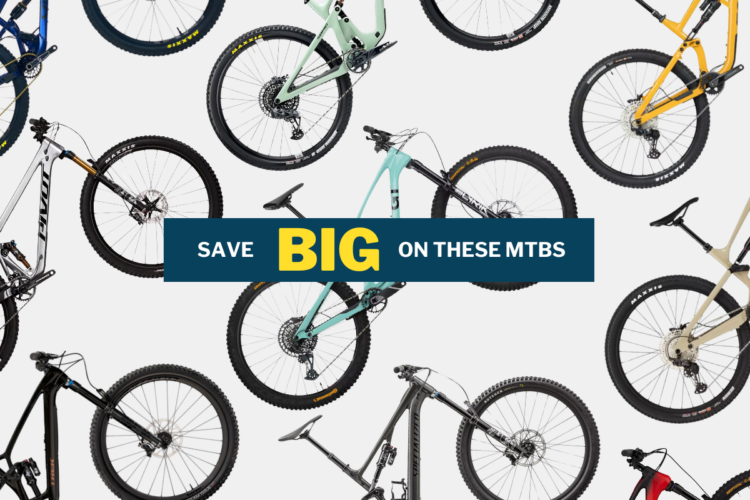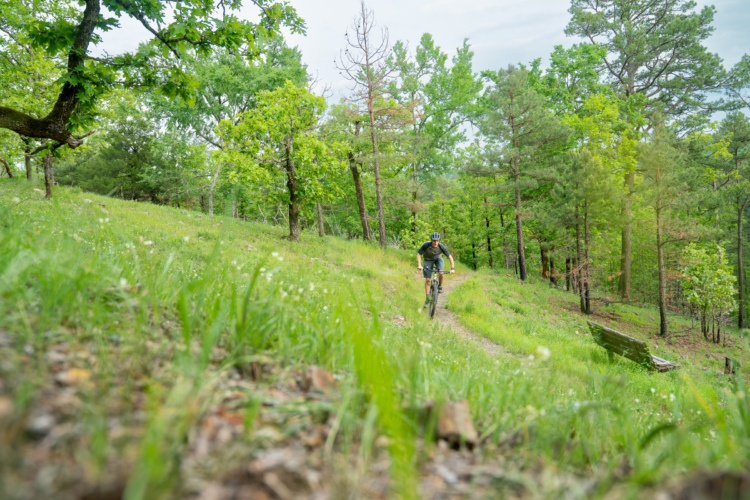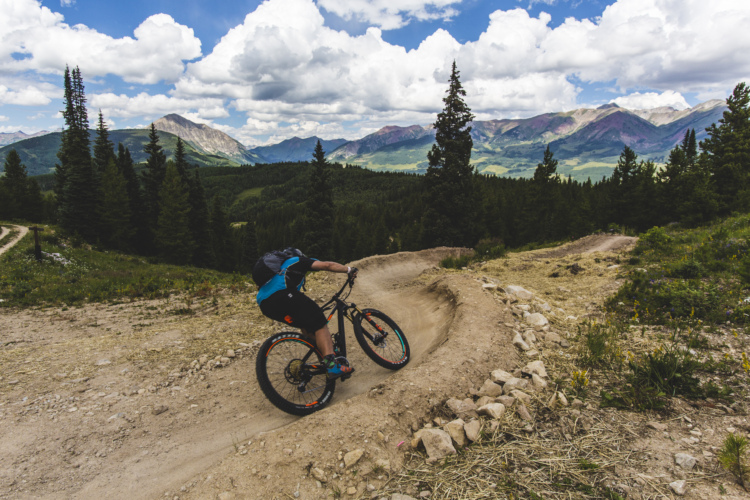
Warehouses and storefronts in Portland, Oregon, are aswim with bicycle creativity, and local wheel brand HiFi rolls through the heart of that Pacific Northwest bike party. The team at HiFi have been designing and hand-building cyclocross clinchers and tubulars alongside über-aero road wheels since 2013, and their extensive mountain bike line deserves its time in the light.
I have been jamming the Hifi Session Carbon Wheels between rocks and off heinous drops over the past several months, and I am happy to report that they took the beating admirably. I raced a handful of enduros on the carbon hoops, and somehow they are as true as the day I pulled them from the box.
Let me preface this review by mentioning that HiFi headmaster, Josh Liberles, is a dear friend of mine, and a former neighbor. When Josh shipped the wheelset I reminded him that I would ride them as hard as possible, and he knows well that breaking nice things is a natural talent of mine. He clearly had confidence in the durability of these wheels that I would later confirm for myself.

Quick tech specs


- Pricing: Carbon $1,790, alloy $890 USD
- Actual weight: 1,738g for the 29″, 32 spoke set with 30mm internal rim width, including tape
- Rim selection: 27.5″ or 29″, carbon or alloy, with 24, 30 or 35mm internal rim measurements. All carbon rims are hookless, and all are made in Taiwan.
- Hub selection: Boost, non-Boost, and QR with 28 or 32 J-bend spoke options available, and XD, XDr, or Shimano freehubs. All hubs will be centerlock going forward, though they still have some 6-bolt Boost hubs available.
- Sapim spokes and alloy nipples
- With these handbuilt wheels, nearly any hub/spoke/rim configuration is possible. Do you want a carbon rim spoked around a generator hub, with My Little Pony decals?
- Freehub: 102 teeth, 6 pawls with 2 POE each, 1.7° of engagement

Ride report

Tubeless tire setup on these carbon rims has been a quick and easy job. HiFi ships all of their tubeless wheels with the tape pre-installed, cutting the setup process in half. I have mounted three sets of tires on the wheels and three different foam inserts in the rear tire. Where I live folks either swap out a few rear rims per year or they use tire inserts, regardless of the rim material. This rim has a deep enough internal channel for the bead to sit in that I was able to mount new front tires without a tire lever, and the insert in the rear went on with little fuss.
The tall, hookless rim wall makes the wheel a touch lighter, and the tire slightly easier to remove. I typically ride with 19-23 PSI up front, and 20-30 in the rear tire, depending on trail conditions, and I have not burped a bead on these tires no matter how low I go. The hookless design seems to be on point with this rim.

I recently removed a portion of the tubeless tape to make sure there wasn’t any sealant leaking into the rim, nor water trapped inside from stream crossings and rainy rides. I cross a few streams per ride on my weekly lunch-laps, and I expected to find a silty stream running out of the spoke holes when I removed the tape. To my surprise, the rims were bone dry inside.
Out on the trail, these carbon rims exhibit ride characteristics that you will find in many top-shelf carbon fiber offerings. They feel far stiffer than alloy, allowing riders to push harder into turns and to aim the bike a little more precisely. The wheels’ lateral rigidity keeps them true longer than alloy, saving time on maintenance. So what differentiates the Session rims from other high-end carbon hoops?

Based on my experience with carbon rims, the Sessions are more robust, and the build characteristics of the wheelset keep them true longer. I have cracked a number of carbon rims, some on the same trails I rode with these wheels, after clapping carbon into the same stones. I try to get a stomach-churning “dganng” from a rock strike roughly once per ride. I am often testing tires, and it’s important to see how flat-resistant they really are.
I gave the Session rims a thorough sunlit analysis, with the tires off, before writing this review. I couldn’t find a single crack in the rim, and the wheels are dead straight in my truing stand. I felt a little defeated for my efforts, while stoked that carbon rims can be so stout.

Now on to my personal favorite part of any well-designed wheelset: the rear hub. The MTB market is buzzing with talk of engagement these days, and specifically about how we can get power to the ground more immediately. This is one place where the Session wheels glow quite brightly.
HiFi’s Fidelity Boost rear hub shell is cut with 102 teeth, biting into 6 pawls with two engagement points each, for a grand total of 1.7° of engagement. To translate that into non-hub-nerd speak, when you start pedaling you are able to push power from the pedals to the dirt after only 1.7° of freehub rotation, or “slack.” There are hubs with lower engagement numbers, but those split hairs likely won’t save you any foot dabs. This near-immediate engagement allows riders to carefully ratchet the cranks where they are needed in narrow, technical tracks and to put the power down in places where it’s not possible to fully rotate the cranks.
In addition to the functionality of the hub, it sounds amazing. The 102 teeth sing a pleasant tune from beneath that sounds far sweeter than my slapping chain. It also makes a convenient “bell” to let folks know you are approaching.

Like the rear hub, the front Fidelity Boost hub is packed with Japanese made stainless steel cartridge bearings that should endure several seasons on the trail. Unlike a lot of modern front hubs, the removable end caps have not fallen off when removing the wheel to load the bike in the van. It’s comforting to know that I won’t arrive at the mountain to find that I can’t ride because my endcap is at home in the driveway.
Final thoughts
In an attempt to diminish the homie-bias, and uphold my clumsy reputation, I have worked hard to drive these wheels into the ground. I rode them through rock crags that I would have steered around with my own wheels, finding every opportunity to punch a hole in the rim or break a spoke.
In the end, the Sessions won. They are a fantastic set of wheels, clearly designed and built to endure the test of modern gravity riding. The hub’s engagement system is a truly precise tool for technical trail riding, making hard rock moves more fun than they are with other hubs. At the moment HiFi doesn’t offer offset rims, but if that’s important for your build there is a good chance they can find a custom option for you. If you’re on the hunt for a pivotal upgrade, have a look at HiFi’s website for further details, or shoot them an email with your custom build ideas.

I would like to thank HiFi for loaning me the Session Carbon wheels to test.










0 Comments